Lunch with Sumiko
From kitchen helper to paying $40m for Yishun coffee shop
When he was 21, Mr Ricky Kok’s rubber tapper parents died in a road accident. The founder of Chang Cheng says it motivated him to work harder and become a success.
SINGAPORE - When Mr Ricky Kok decided to sink $40 million into buying a coffee shop in Yishun earlier in 2022, he didn’t lose sleep over it.
“I sleep very well,” the founder and executive chairman of Chang Cheng says serenely.
“After I made the purchase, I was quite happy. I didn’t feel any stress because I know there’s business in that area.”
He’s an old hand when it comes to snapping up multimillion-dollar kopitiams.
In such deals, what matters most is to be able to cover the 20 per cent upfront payment, he says. This worked out to $8 million for the Yishun purchase.
The other 80 per cent comes from bank loans. “As long as the amount we receive from rental is able to be returned to the bank, with interest, it’s not a problem,” he says in Mandarin.
Of the 22 stalls in the coffee shop at Block 848 Yishun Street 81, Chang Cheng operates three. So besides collecting rent from space he lets out, he gets revenue from his own stalls.
“I know that if we do our business well, we can earn a bit of profit. This also made me feel less stressed.”
With 31 Chang Cheng Mee Wah coffee shops under his belt and more than 1,000 employees, the rags-to-riches businessman is one of Singapore’s kopitiam kings.
He owns 13 of the premises, with the rest leased from either the Housing Board or other property owners.
He also operates about 160 food stalls under the brands Chang Cheng Chinese Vegetables Rice, Ming Kitchen Seafood Restaurant, and Rong Kee Roasted Delights.
These are located in his own coffee shops as well as other kopitiams and foodcourts. The stalls serve more than 100,000 customers a day, with takings averaging $300,000.
In 2019, he branched into halal food with Mewahsedap, which provides the sausages and meat patties used in some fast-food chains. He also started a catering arm, Enaksedap F&B, in 2020.
He holds 75 per cent of the company, after buying over shares from a former partner. His wife, Ms Delphine Lim, owns the rest.
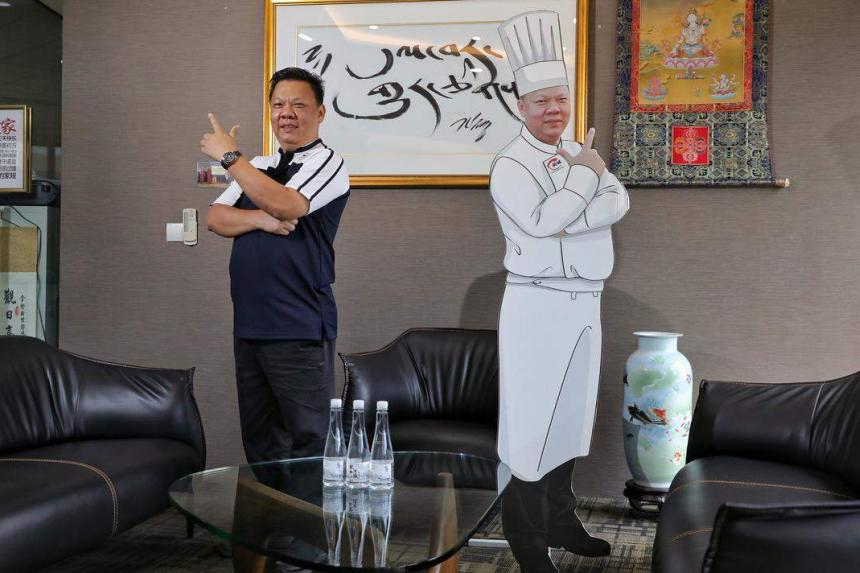
I am meeting Mr Kok, 53, at Chang Cheng’s headquarters in Woodlands Link.
The modern, five-storey steel and glass building houses offices, its central kitchen and also a spacious Chang Cheng Mee Wah foodcourt on the ground floor that is open to the public.
The walls and pillars of the foodcourt are adorned with ink drawings of Chinese scenery and calligraphy extolling virtues like “charitable heart” and “sense of responsibility”.
The corporate office upstairs is lined with framed Buddhist silk paintings and more sayings in calligraphic script. One reads shan ji tian xia, which translates to spreading kindness and charitable acts to the world.
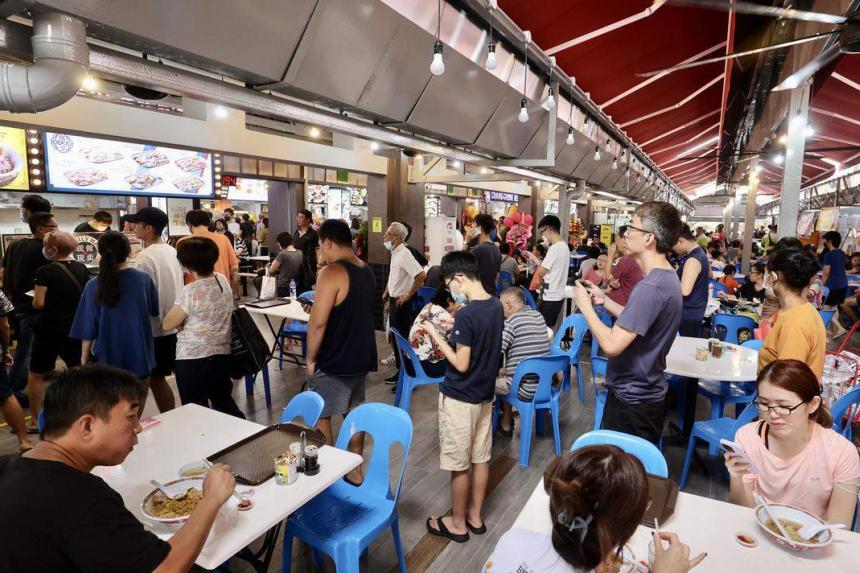
Mr Kok comes across as someone who walks the talk. Over a nearly three-hour meeting, he is easy to warm up to. He has kind eyes and a calm, unhurried manner. When he talks about values like loyalty and trust, you sense he means it.
He mentions at one point how he was easy-going as a young man.
You come across as pretty easy-going now as well, I tell him.
“It’s just my character,” he laughs.
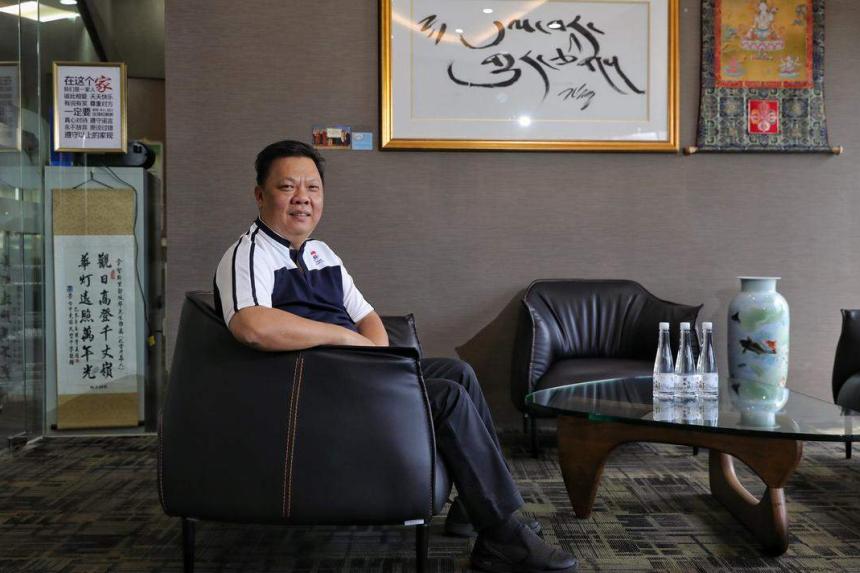
I point to the Buddhist artefacts in his office and wonder if religion has had a role in this.
“That’s a good question,” he says. “I’m always thankful for the protection of the heavens and Buddha. Does it have to do with my character? Maybe.”
His assistant had told me that he would like to buy lunch but I say the format is that The Sunday Times has to pay for it. Let me get something delivered instead. She comes back with a suggestion: He likes Hawaiian pizza.
I get Hawaiian, mushroom and vegetarian pizzas from Da Paolo and schedule them to arrive before our meeting.
When I get there, the pizzas haven’t arrived. My mind races to think of a Plan B.
We decide to get his photographs taken first. There is a standee of Mr Kok in a chef’s uniform in his office (his career started in the kitchen) and he gamely poses next to it.
He then leads us to a conference room where he gives us a 10-minute slide presentation of Chang Cheng’s history. Luckily, the pizzas arrive while we’re in there. We have lunch at the sitting area in his office.
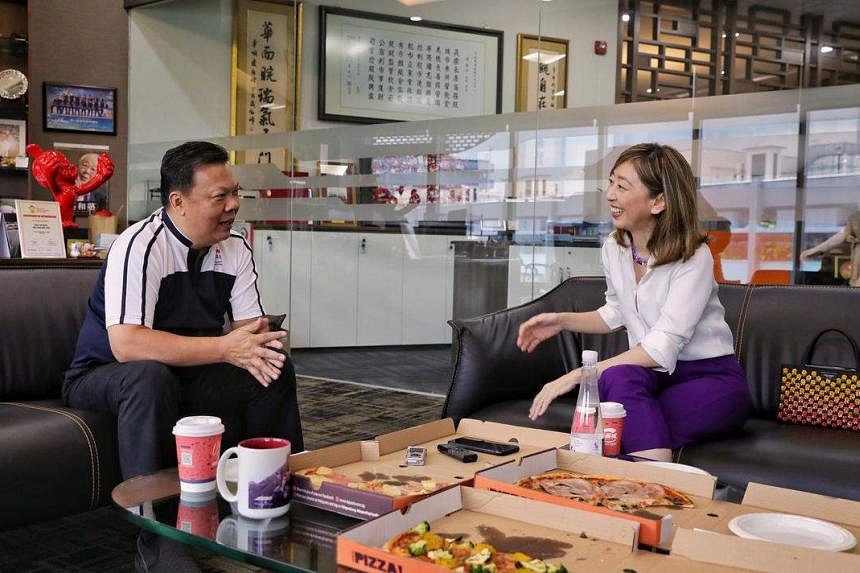
Hard life
He was born in Seremban in Negeri Sembilan, the fifth of five boys and two girls in a Hakka household.
His parents – Mr Kok Yee Nam and Madam Chon Tham Kiow – were rubber tappers and the family had to move wherever their job took them.
He left school after Secondary 2 and his first job was changing engine oil for lorries. He worked from 10am to 8pm. ”After three months, I stopped. I thought I was trying quite hard, but my boss said I wasn’t hard-working enough, so I left.”
He headed for Singapore, where a sister was working, and got a job as a kitchen helper at a seafood restaurant in Punggol, helping the chef and doing odd jobs.
The milestones of his working life are measured by his salaries.
At the restaurant, he earned $450, he recalls. At his next job in the kitchen of a hotel in Scotts Road, he took home $800.
A pager call in 1990, when he was 21, changed his life.
His parents in Malaysia were riding a motorcycle when his mother, who was probably feeling unwell, fell. His father stopped the motorbike to help her get up. At that point, a lorry rammed into them. His parents, then in their 50s, died.
“It was definitely a very sad period,” he recalls. “We were all rushing back home and crying non-stop.”
It still pains him how poor the family was. His parents earned just 10 ringgit a day as rubber tappers, and the children were in low-paying jobs. “Everyone’s salary was not high, around $1,000.”
He had planned to visit his parents two weeks earlier but didn’t as he had run out of money. “I thought I’d go home after receiving my salary, but during those two weeks, the accident happened. I really regret it,” he says, tears welling up.
“At their funeral, I made the promise to myself that I had to succeed and take care of myself to do them proud.”
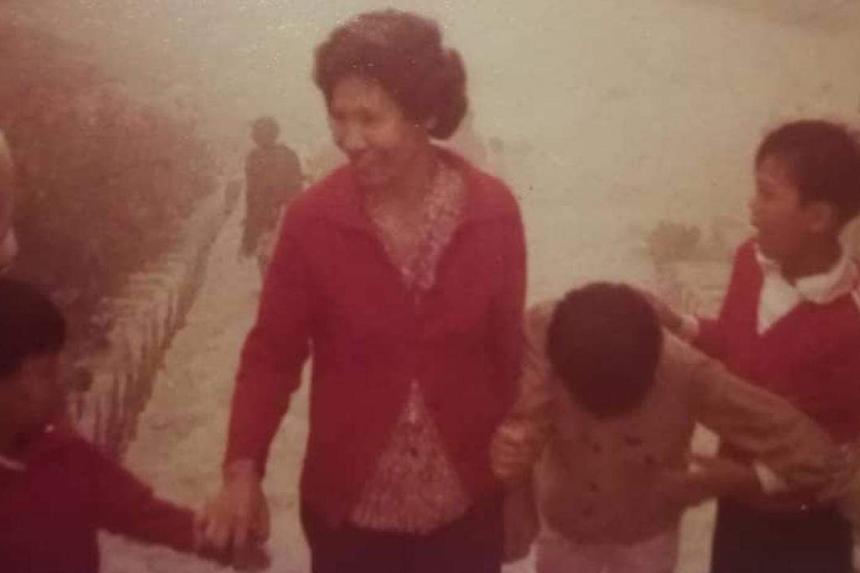
He quit his job at the Scotts Road hotel, moved to another hotel, then a club in Clementi. His salary rose to $1,500 a month. He also became a Singapore permanent resident.
This was around the time of the Gulf War and he made the bold decision to move to Kuwait as head chef of a Chinese restaurant at a hotel. He could earn US$1,700 a month. He spent a year there.
“My wife now, girlfriend at that time, kept crying,” he says of how she took his decision.
He had met Ms Lim some years earlier, when he was visiting a friend who was selling clothes in Toa Payoh. “Just nice, she was working there part-time. I said ‘hello’. One year later, we met again and started dating.”
Back from Kuwait, he worked for another two years and in 1994, when he was 25, opened a mixed-rice stall at Block 126 Toa Payoh Lorong 1. He did the cooking and had two helpers.
At the time, most stalls were opting for one-dish offerings like chicken rice. He chose the more laborious mixed rice (also known as economy rice, or cai png in Hokkien) business, where multiple vegetables and meat dishes are sold. He wanted to offer customers more variety.
Unlike many stalls which did one shift – preparing food in the morning and staying open till 5pm or so – he did two. He cooked in the morning to sell in the afternoon, then cooked in the afternoon to sell at night. This way, he caught both the lunch and dinner crowds.
He aimed for a home-cooked taste and tried to replicate his mother’s dishes, like pig trotters in vinegar. He took customers’ feedback seriously, and if he didn’t know how to improve on the taste of a dish, would seek the advice of kitchen mentors he had worked with before. The stall went from making $270 a day to more than $1,000.
Those early years taught him a lesson about location.
A customer told him that while his food was good, his stall was too hidden inside a coffee shop and should be more visible.
In 1996, Mr Kok bought a second stall at Block 111 Toa Payoh Lorong 1, nearer the main road. Takings shot up.
Expansion was the only way he could raise not just his own earnings but his two helpers’ too, he says. “My salary then was $2,500, my assistants’ was $1,500. For them to earn at my level, I needed to expand the business.”
When owners of other stalls retired, he took over their space. From mixed rice, he added roasted meats, then zichar (cooked-to-order dishes) and seafood. He stopped cooking after his eighth stall to focus on managing the business.
Delicate balance
Ms Lim, meanwhile, stuck by him. “Wear high heels and help me wash dishes,” he chuckles at the memory.
They got married when he was 30 and she is an executive director at Chang Cheng, doing the finances. They have four children – sons aged 24 and 10, daughters aged 23 and 11.
Of the large age gap, he says: “We stopped at the second one because of health reasons. We went to do qigong and had two after that.”
In 2000, he entered the coffee shop business with the Chang Cheng Mee Wah brand.
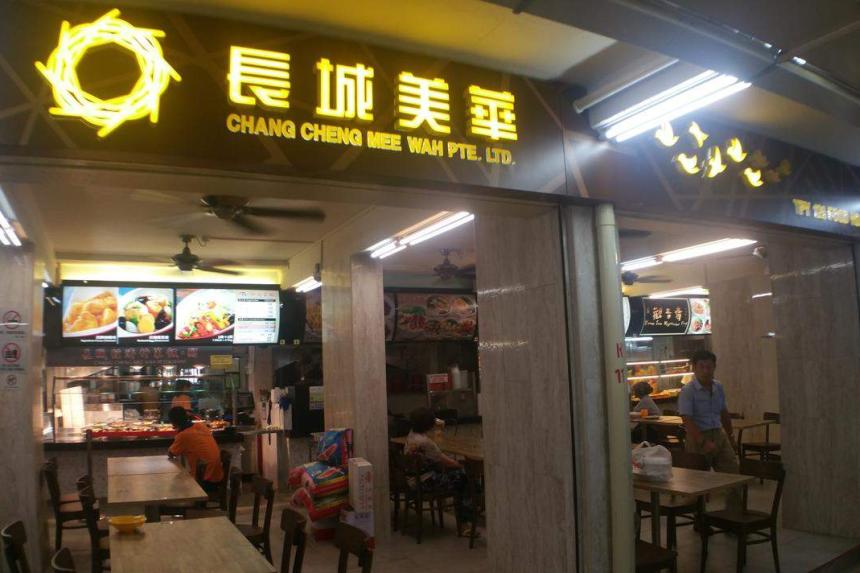
Chang Cheng is from the name of the restaurant his first stall in Toa Payoh was located in, and Mee Wah from the restaurant his second stall was in.
His first kopitiam purchase was in Bukit Merah, and he paid about $3.5 million for it. The food business didn’t do well there, but he sold the shop for $4.5 million.
His second coffee shop was in Marine Terrace, and he bought it for $4.6 million.
There are about 10 players in the kopitiam scene today, including names like Broadway, Kopitiam and Koufu. As both coffee shop and food stall owner, Mr Kok has to strike a delicate balance to avoid conflicts of interest.
When he entered the coffee shop market, some kopitiam owners did not want to renew the leases of his food stalls. “Because I want to rent stalls from them, but I’m doing my own business as well, there is a bit of competition, which I try to avoid.”
He says he believes in doing business with integrity and being upfront about his intentions. He describes the industry as “quite friendly and cordial”.
Margins are steady, but small, in the food segment he is in, and scalability is important.
With dishes priced at $3 to $4, there’s a 5 per cent to 8 per cent profit. “If you do well, around 10 per cent profit. The margin is not very big, so we need to do it at a large scale.”
Chang Cheng has its own vegetable farms in Johor Bahru. Its vegetables are processed in a JB factory and sent to Singapore. Sauces are also made in JB for cost reasons. Dishes are pre-packaged in the Woodlands central kitchen and delivered to stalls to be cooked.
There have been mistakes along the way. While the first 30 stalls he opened were profitable, further expansion came with manpower issues and some stalls made losses.
Rising rentals are another headache. He says he pays about $1 million in rent a year. As a coffee shop owner, he is also on the other side and has increased rents. He charges about $5,000 to $10,000, depending on factors like location.
He has his eyes on other businesses. He recently bought local fruit tea chain Partea. He and a partner are building a condominium on land they own in Bukit Bintang in Kuala Lumpur that will be ready in 2025. He will operate a hotel on the 50th to 68th floors of the building. They also have land in Malacca.
We’ve been talking for more than two hours and he’s had barely two slices of pizza. As I wrap up the interview, he asks if I would like to eat at his foodcourt downstairs. Yes, I say. His company has been enjoyable.
He buys me a bowl of fish noodles and we share a dish of egg fried with bitter gourd. Both taste good. He insists on paying.
When one of his staff sees us and greets him, he jokes: “Wah, why so polite today?”
Although he has thought of becoming a Singapore citizen, he remains a permanent resident. “I feel that if I change my citizenship, it would break the relationship I have with my parents.”
To preserve their memory, he bought the house in Negeri Sembilan where he was born and lived as a child, as well as two neighbouring units. No one lives there and it is used for family gatherings. He named the garden “Kok Family Park” and sometimes stays over. “When I go home to sleep, I feel very warm, like I have strength.”
Two siblings remain in Malaysia and the other four are in Singapore. Of the four, two work in Chang Cheng and the other two are in the food business.
Life is good. He drives a Bentley, lives in a modest bungalow in Bishan, and is a grassroots leader.
He reflects on how a motivating force in his life has been to succeed and not make his parents worry. Do you have other dreams you want to fulfil, I ask.
“Maybe buy a big house for my children to stay in, do more charity, take care of the team well, and take care of my health,” he says.
His parents would be proud.
- Translation by Sarah Koh
Join ST's Telegram channel and get the latest breaking news delivered to you.


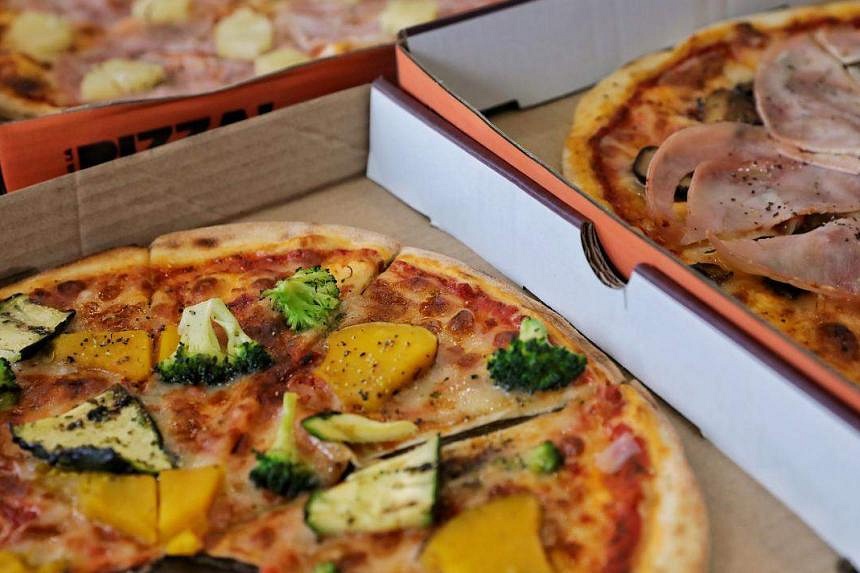
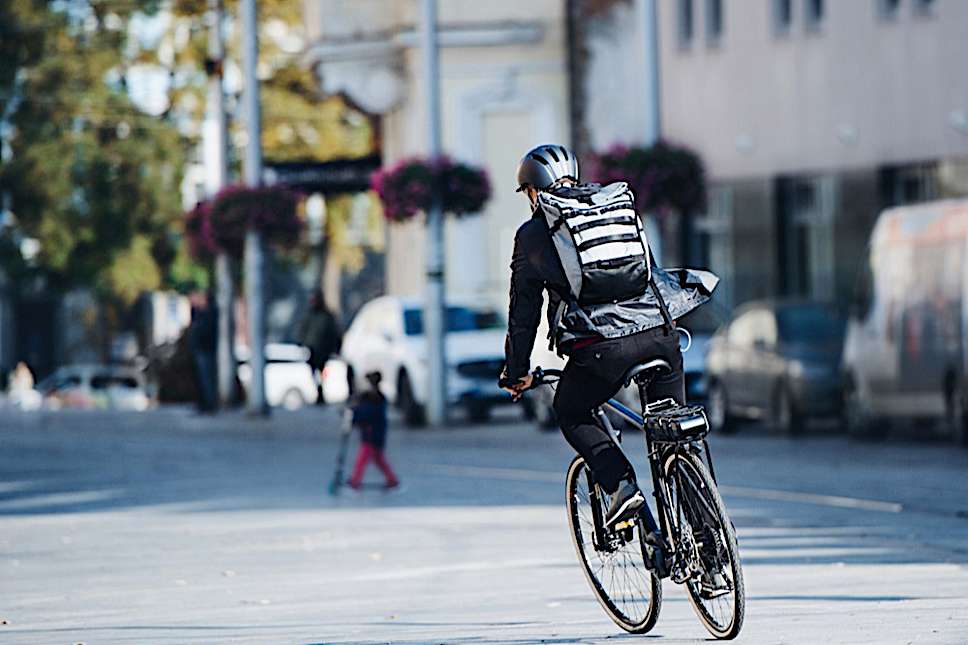

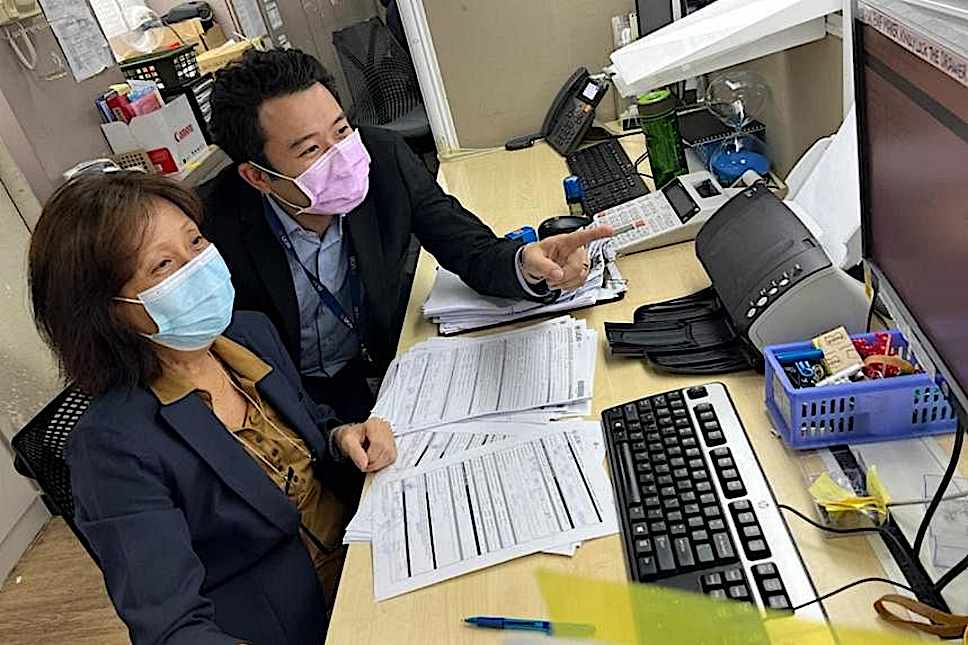

No comments:
Post a Comment